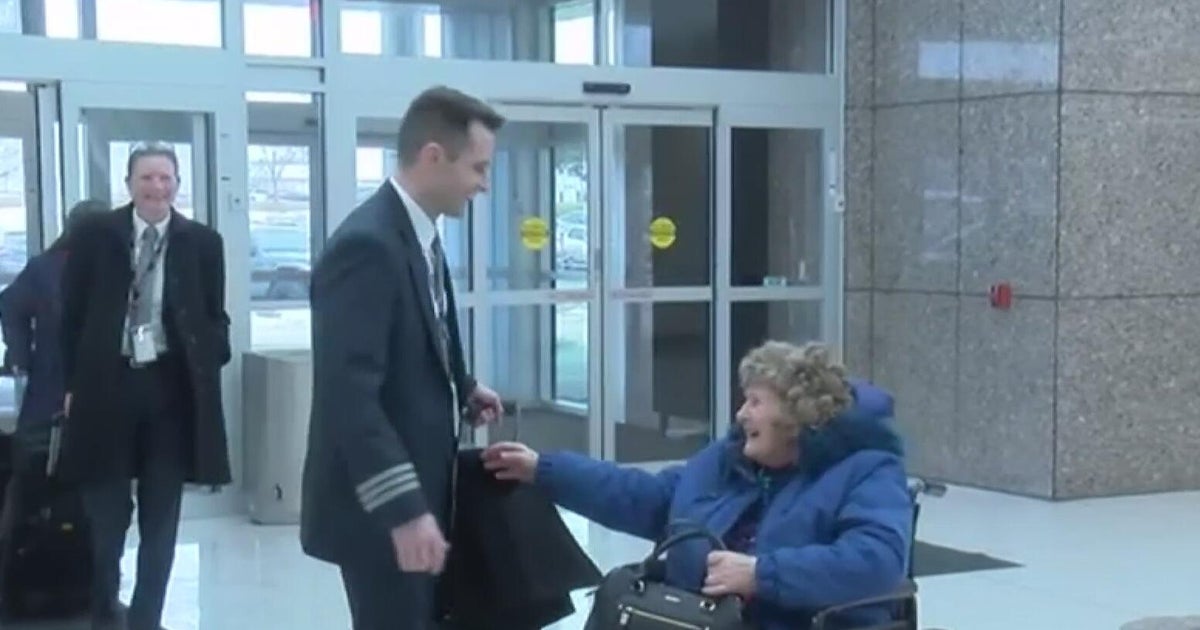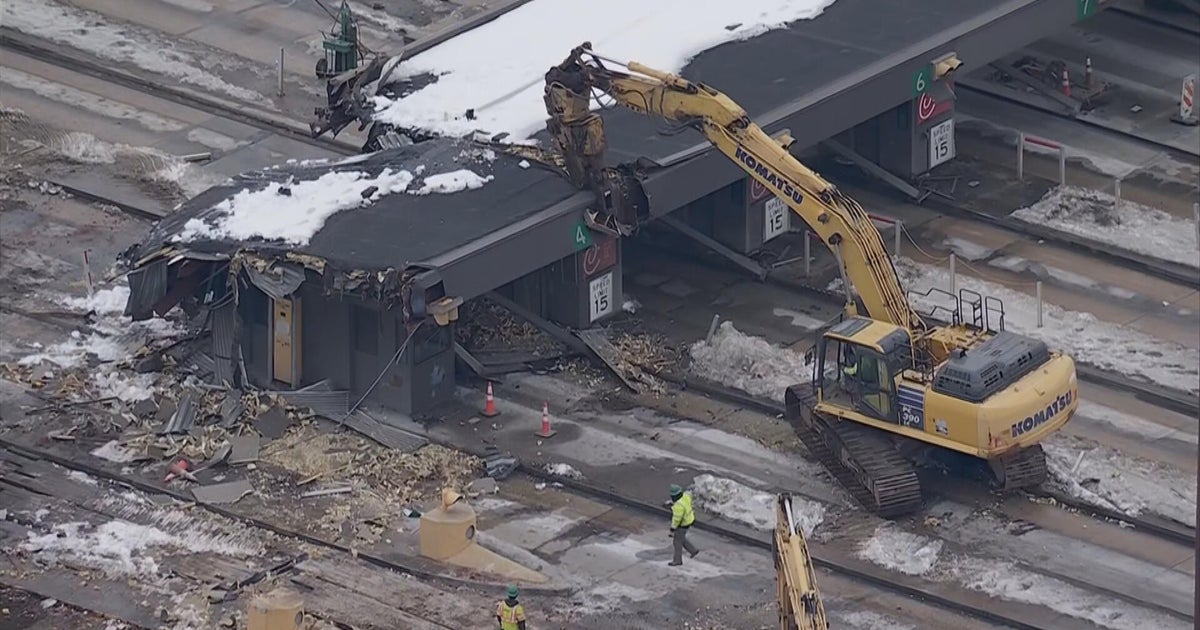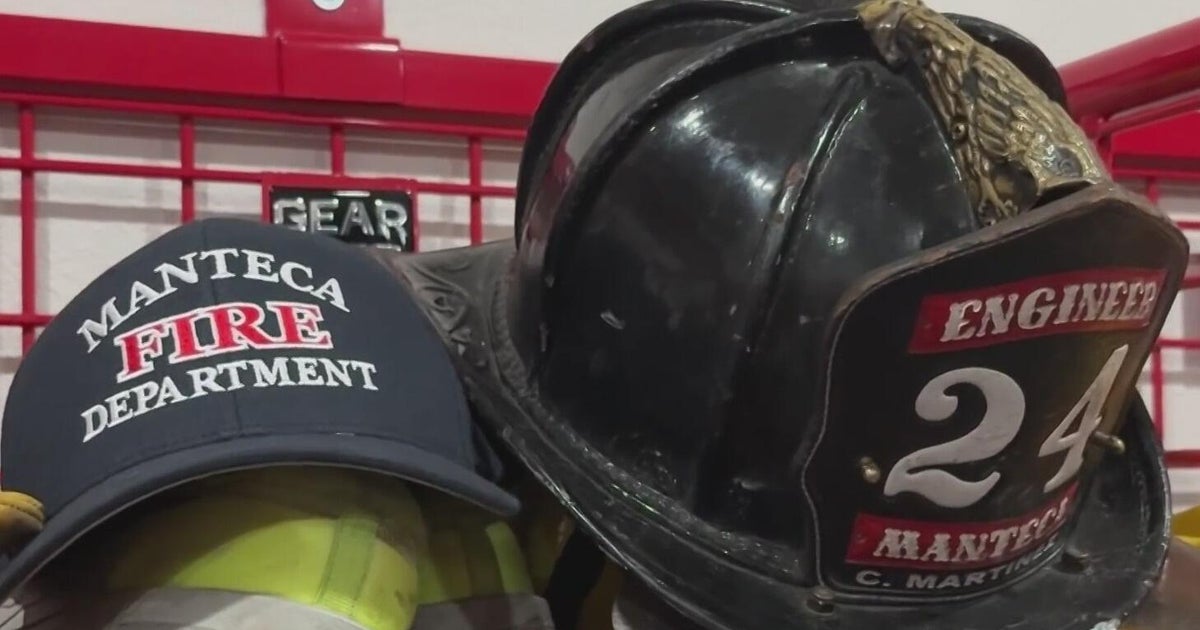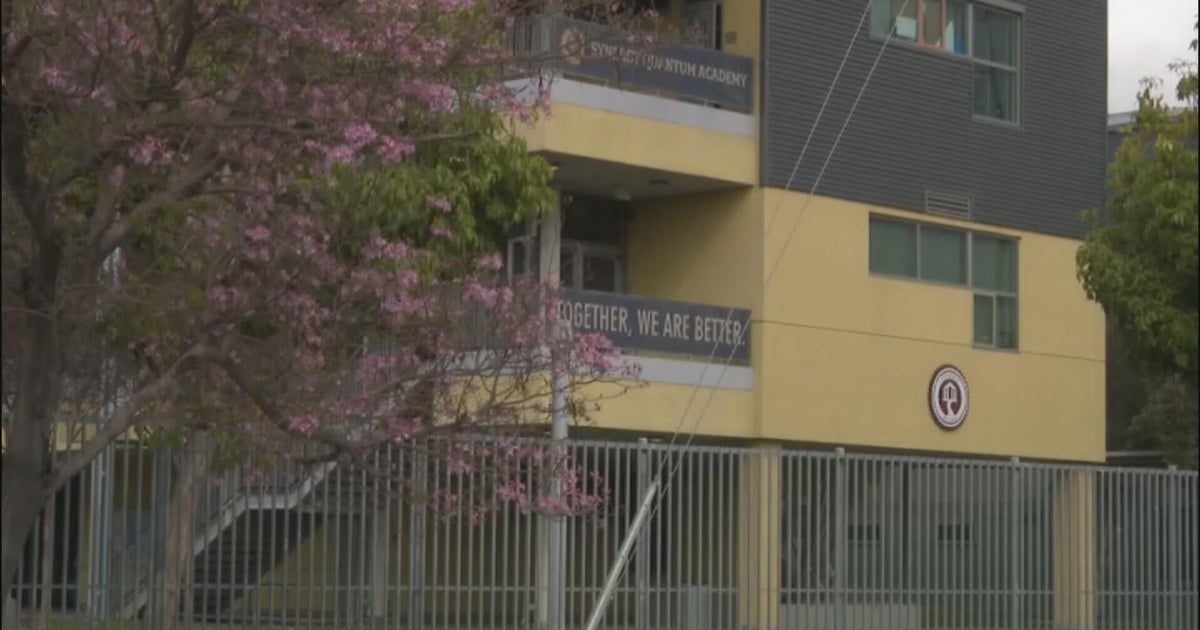Flights Cancelled At MSP After Ill. Air Traffic Facility Fire
MINNEAPOLIS (WCCO/AP) — All flights in and out of Chicago's two airports were halted Friday after a fire at a suburban Illinois air traffic control facility sent delays and cancellations rippling through the nation's air travel network.
O'Hare is the nation's second busiest airport in terms of total passenger traffic, and is home to hubs for both American and United Airlines, so the incident was causing quite a headache for people trying to get to Chicago from Minneapolis.
Dozens and dozens of flights headed for Chicago were cancelled at Minneapolis-St. Paul International Airport.
"Eighty flights that should be flying to or from Chicago are not happening, at least not at this point," Metropolitan Airports Commission spokesperson Pat Hogan said. For people who are just trying to connect through Chicago, they are able to re-route. But if Chicago your destination, there's really no way to get there by air."
Hogan said that Chicago is the biggest market for MSP Airport, with typically 9,000 people flying between the two cities.
"This is going to have longer term effects. Planes are flying so full these days that even once they start flying again, people who weren't able to get out earlier are going to be really working hard to try to find an open seat," Hogan said.
Passengers there were either lucky enough to get on a later flight this afternoon or were forced to reschedule for Saturday.
"We could either book for tomorrow or my son said he would come to Milwaukee to pick us up," Doug Sill, of Chisago City, said.
Airlines have been working frantically to help passengers find the soonest flights available even if means going to another airline or rerouting to transfer flights in a different city.
"We have no idea at this point," Hogan said when asked when service will resume. "It's all going to depend on if the FAA can get people back to work and when they can assess whether or not computer systems there have been damaged to the point where they are not able to be used."
-------
Authorities said the blaze was intentionally set by a contract employee of the Federal Aviation Administration and had no ties to terrorism. More than 850 flights had been canceled in Chicago alone and many more were expected.
The early morning fire forced the evacuation of the control center in Aurora, about 40 miles west of downtown Chicago. Emergency crews found the man suspected of setting the fire in the basement, where the blaze began, with a self-inflicted wound. He was taken to a hospital.
Aurora Police Chief Gregory Thomas said the fire was not a terrorist act. The FBI, the Bureau of Alcohol, Tobacco, Firearms and Explosives, and local police and fire departments were investigating.
When the center was evacuated, management of the region's airspace was transferred to other facilities, according to FAA spokeswoman Elizabeth Cory.
Authorities said it was unclear how long the stoppage would last.
Aurora spokesman Dan Ferrelli gave no details on the suspect's injury, but said in an emailed statement that it was not from a gunshot.
Another employee of the facility was treated at the scene for smoke inhalation. The flames were extinguished by 7 a.m., according to Ferrelli's email.
Online radar images showed a gaping hole in the nation's air traffic map over the upper Midwest.
At O'Hare's Terminal 3, long lines formed at ticket counters as airlines continued to check in passengers.
Waiting by an American Airlines counter, Jon Sciarrini said his homebound flight to Dallas had been delayed, and he didn't know whether he should wait or try to arrange another flight.
"It's pretty frustrating — a little like being in purgatory," the IT specialist said.
It was the second time since May that a problem at one of the Chicago area's major control facilities prompted a ground stop at O'Hare and Midway international airports.
In May, an electrical problem forced the evacuation of a regional radar facility in suburban Elgin. A bathroom exhaust fan overheated and melted insulation on some wires, sending smoke through the facility's ventilation system and into the control room.
That site was evacuated for three hours, and more than 1,100 flights were canceled.
The Aurora facility, known as an enroute center, handles aircraft flying at high altitudes, including those approaching or leaving Chicago airports. Air traffic closer to the airports is handled by a different facility and by the control towers located at the airfields.
A computer glitch at a similar facility on the West Coast in April forced a 45-minute shutdown at Los Angeles International Airport.
(© Copyright 2014 The Associated Press. All Rights Reserved. This material may not be published, broadcast, rewritten or redistributed.)







